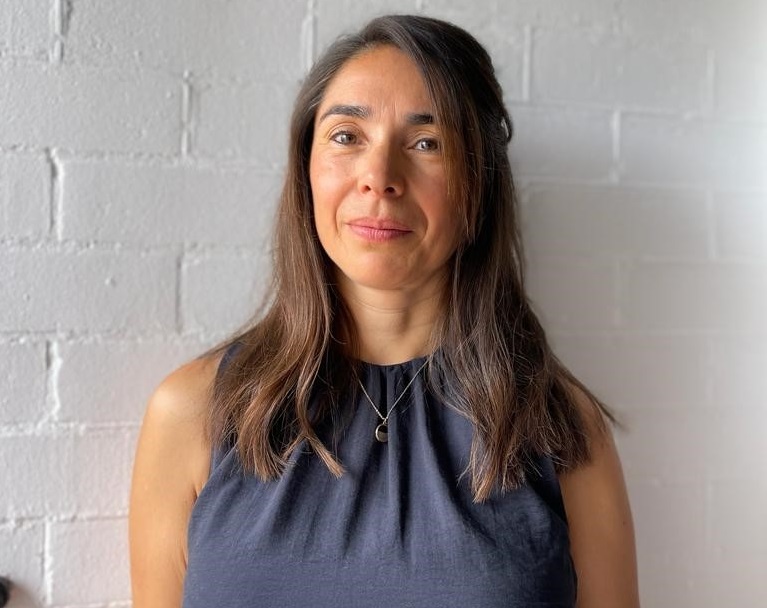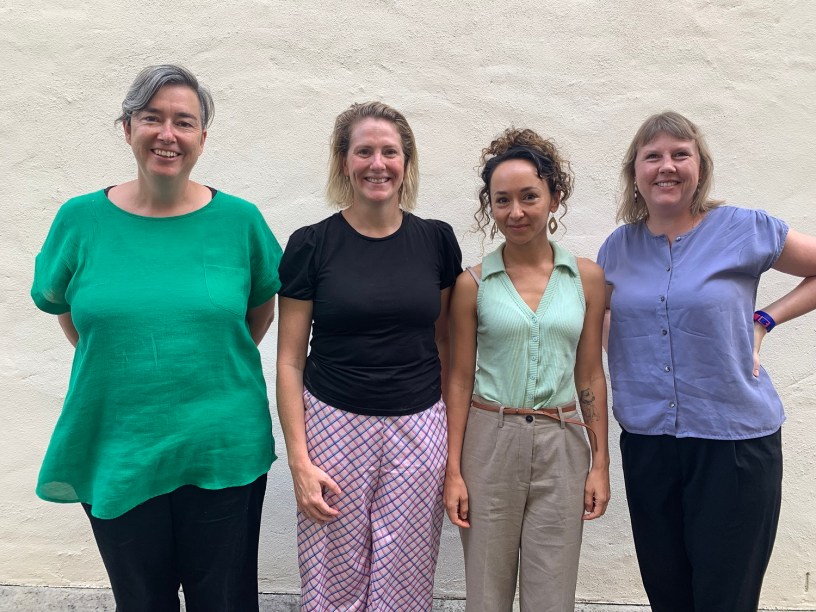Documentary Australia has selected the inaugural participants of its Impact Producer program, with four professionals to undertake specialised training in creating campaigns related to social impact documentaries.
Mel Harwin, Rowena Potts, Natasha Akib, and Andrea Foxworthy were chosen from a field of more than 70 applicants and carry expertise in social affairs, ranging from academia to international development.
As part of the ten-month initiative, they will be embedded with the Documentary Australia team and receive mentorship from CEO Mitzi Goldman, impact and evaluation director Lucy Corrigan, partnerships and development director Sharlene Dadd, senior impact producer Lisa Kanani, CFO Lisa Sherrard, and impact director Stephanie King, as well as communications and social media strategists.
After a series of masterclasses with experts in the fields of impact, film distribution, fundraising, filmmaking and communications, each individual will be assigned to different films, chosen from one of the seven Documentary Australia impact areas: arts; environment; health and wellbeing; human rights and social justice; Indigenous; women and girls, and youth and education.
Participants will receive a stipend of $50,000 to enable them to take part and dedicate at least three days a week over 10 months of the program from February to December.
The program is being delivered as part of a funding partnership between philanthropic and government agencies including Screen Australia, Screen NSW, VicScreen, The Snow Foundation, The Dyson Bequest, and Minderoo Pictures.
Goldman said the initiative provided the opportunity for professionals to move into the profession of impact producing within a creative and supportive environment.
“At Documentary Australia we are acutely aware of the many pressing social issues that need attention, yet there can be a paralysis of action. However, there is much innovation and change occurring across society,” she said.
“The steps towards system transformation seem enormously challenging, overwhelming, and at times obscure. Inspiring and coordinating collective actions can grow movements and catalyse long-term thinking, leading to eventual social change.
“Storytelling has a significant role to play in this endeavour.”

‘They become passion projects’
With increased investment from streaming services and new pathways to audience driving a surge in demand for documentaries globally, so too has the role of an impact producer grown in prominence.
It’s been nearly a decade since Documentary Australia partnered with Shark Island Foundation to present Good Pitch Australia, a forum in which filmmakers presented their projects in front of NGOs, philanthropists, and other potential partners, with the event going on to raise more than $14 million for 19 titles and their impact campaigns.
The organisation has continued to support filmmaking teams in implementing strategic impact and education strategies around social impact documentaries in the past few years. Examples of note have included Maya Newell’s In My Blood It Runs, which raised $75,000 for immediate COVID-19 relief for Indigenous communities; Jane Hammond’s The Cry of the Forests, a film that was instrumental in ending native forest logging in Western Australia; and Catherine Scott’s Backtrack Boys, which drew more than $500,000 in donations to Backtrack Youthworks, an organisation which helps young people doing it tough to develop positive life pathways.
Lisa Kanani has led the impact campaign for Backtrack Boys since its release in 2018, after joining Documentary Australia as communications and general manager in 2016.
She said the role of impact producer changed day-to-day.
“It’s all about managing all the moving parts of a campaign,”
“I come from a PR marketing and project management background and so I’m very used to working with different stakeholders from different sectors and making everything move towards amplifying a message.
“At the start of a campaign, it could be doing things like brains trust meetings where you get all the partners on a film in a room and create a campaign strategy and a clear course to action that you would want the audience to take after a film.
“Then it will be managing those partnerships and making sure that you working with a partner to help reach their goals and messaging correctly out to the audience as well.”
Not only is Kanani a mentor for the Impact Producer program, but she is also working on the campaigns for the first three titles to be supported through the organisation’s Environmental Accelerator – Greenhouse by Joost, The Giants, and Delikado.
She admitted that creating lasting change through impact campaigns often did not come easily.
“You have to be so dedicated to that film and there is so much work to be done on creating that change,” she said.
“It can be so rewarding but it’s demanding as well. You have a responsibility to the film team and the people in the film and they can be difficult issues that you are working on.
“They become passion projects.”


